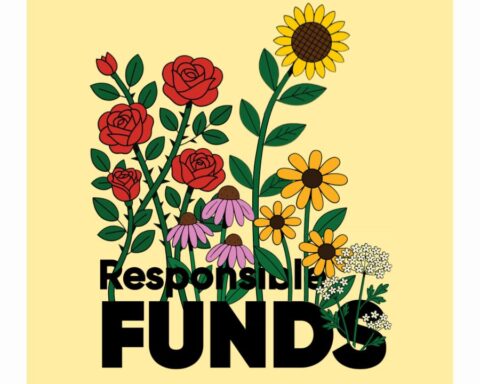European political leaders have proposed a massive revamp of sustainable business and finance transparency laws in a move they say will improve the European Union’s competitiveness and save more than €6 billion in social and environmental disclosure costs.
Yet the so-called simplification omnibus bill proposed by the European Commission (EC) – the executive branch of Europe’s government – has come under widespread criticism. Sustainable finance, human rights and labour leaders warn that Europe is making a U-turn on social and environmental reporting policies that are a model for the world.
The pullback threatens to erode years of progress, which has made Europe the leading market for sustainable funds, green bonds and other responsible investments, and jeopardizes the capital needed for the EU’s ambitious climate goals.
“Drastic changes to the scope of sustainability reporting rules will limit investor access to comparable and reliable sustainability data,” said Aleksandra Palinska, executive director at the European Sustainable Investment Forum, Europe’s umbrella network for sustainable finance, in a press release. “Voluntary reporting from companies will not fill this data gap.”
“This is not simplification,” said Isabelle Schömann, deputy general secretary of the European Trade Union Confederation, in a statement. “The Commission claims to be cutting red tape but is in fact gutting its human rights legislation.”
The measures, introduced February 26, will now go to the European Parliament and European heads of government for approval.
Deep cuts are meant to improve competitiveness
The changes are necessary because of “dramatic shifts in the geopolitical landscape,” said EC vice president Valdis Dombrovskis in his remarks on the proposal, pointing to growing tensions between the United States and Europe over the Ukraine war. “We need to treat these developments as a call to action . . . In short, we need to build a more competitive Europe.”
The European Commission is handing big businesses a free pass to avoid responsibility for their impact on people and the planet.
– Maria van der Heide, Head of EU Policy, ShareAction
The business community – especially small and medium-sized businesses – see the sustainability reporting obligations as a drag on Europe’s economic growth and defence capabilities. The EC will introduce additional omnibus bills in coming months to meet its goal of cutting red tape while preserving the objectives of the European Green Deal.
Here are the main rollbacks proposed in the initial package.
80% fewer companies required to report
Of the companies currently covered under the Corporate Sustainability Reporting Directive (CSRD), 80% will be removed from their obligations under the new rules. Adopted in 2021 and coming into effect for the 2024 financial year, the CSRD is the regulatory framework requiring firms to file social and environmental data and impact reports. Generally, only companies with at least 1,000 employees will be required to report, up from 250 under the existing rules. This means that about 10,000 Europe-based companies will be required to report, down from about 50,000 under current rules. About 80% of the 10,000 non-EU-based companies operating in Europe currently covered by CSRD will also be removed from reporting obligations.
RELATED
Canadian investors stand firm on ESG despite ‘greenhushing’ trend, report finds
The anti-DEI movement confronts an unlikely opponent: big banks
Meet the four most sustainable funds on the market for 2025
Deadlines to submit reports starting in 2026 will be pushed back to 2028. Smaller companies that are part of the value chains of larger companies will be shielded from reporting requirements currently in place.
Corporate due diligence loosened
Under the new rules, companies will no longer be required to put into effect a climate transition plan, an obligation under the current Corporate Sustainability Due Diligence Directive (CSDDD) rules. In addition, obligations to track issues like human rights and carbon emissions in company supply chains will apply to direct business partners only, rather than the entire chain of suppliers. Supply chain audits will be required once every five years rather than annually.
Civil liability rules will be changed, reducing the risk that third-party victims can sue companies for non-compliance. CSDDD reporting timelines will also be moved from 2026 to 2028. CSDDD will also apply to a smaller number of companies under the new rules, estimated to be 6,000 European companies and 900 non-EU companies.
EU climate taxonomy simplified
The new rules also reduce the reporting burden under the EU taxonomy, the classification system that determines whether companies are making capital investments in line with a net-zero future. Companies are required to report under a list of hundreds of data points, which vary by company. The new rules reduce the number of data points by 70% and introduce the option of reporting partial disclosure under a transition finance option.
European Commission announces clean industrial deal
The EC also announced a “clean industrial deal,” a plan to encourage high-emitting industries like steel and cement to move toward a net-zero future and incentives for cleantech firms to expand green investments. The deal also included plans to reduce business and consumer energy bills, faster permitting of renewable-energy projects, and procurement rules favouring European cleantech companies for public projects.
In making the announcement, the EC reaffirmed its commitment to cut European carbon emissions by 90% by 2040.
The commission has “been very clear that our simplification agenda is not deregulation, and we are not changing our Green Deal goals and targets,” says Dombrovskis, who serves as commissioner for simplification.
But Maria van der Heide, head of EU policy at ShareAction, a U.K.-based non-profit shareholder action network, says the EC “is opening the door to rampant greenwashing” by making it harder for investors to distinguish sustainable businesses. “This is a very dark day for the EU,” van der Heide said in a statement. “The European Commission is handing big businesses a free pass to avoid responsibility for their impact on people and the planet.”
Eugene Ellmen writes on sustainable business and finance. He is a former executive director of the Canadian Social Investment Organization (now the Responsible Investment Association).







